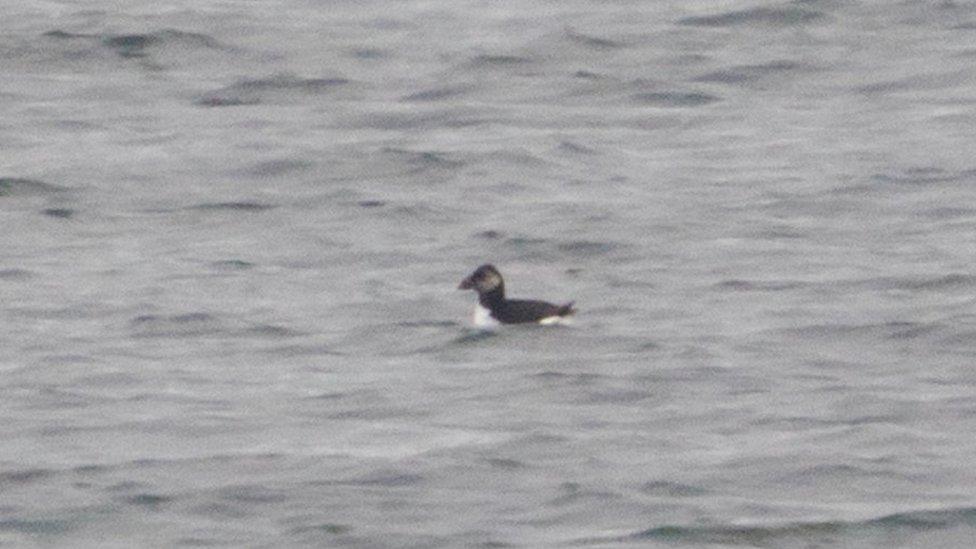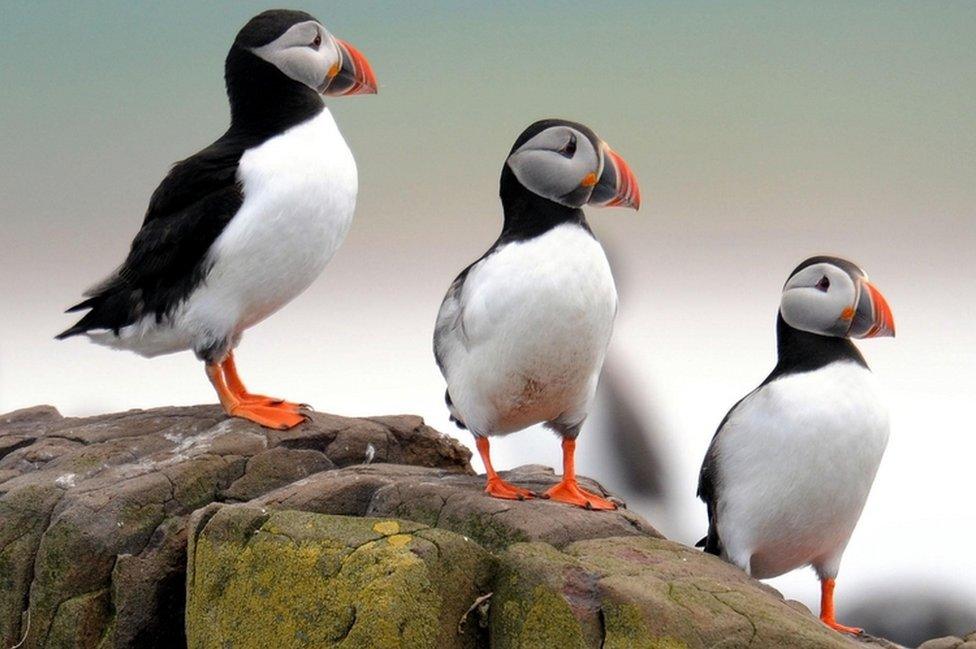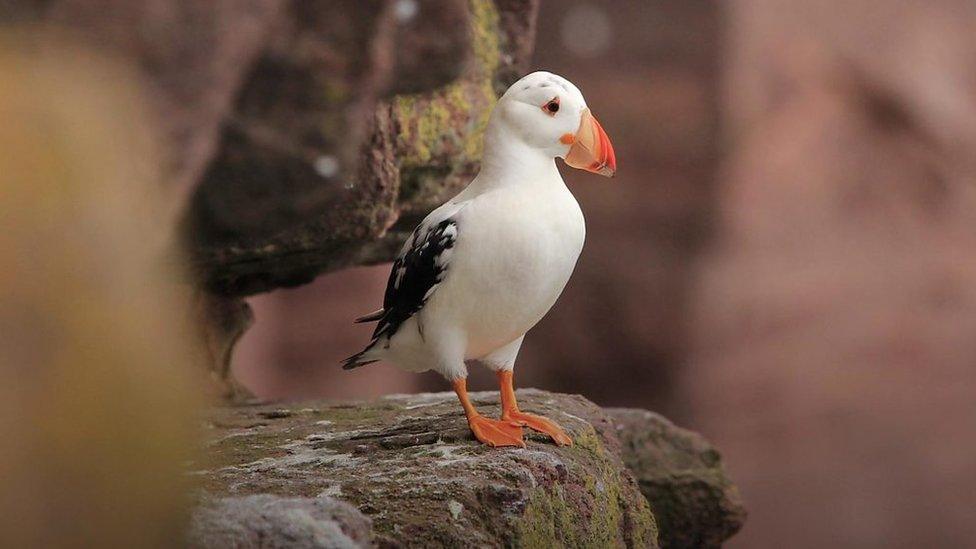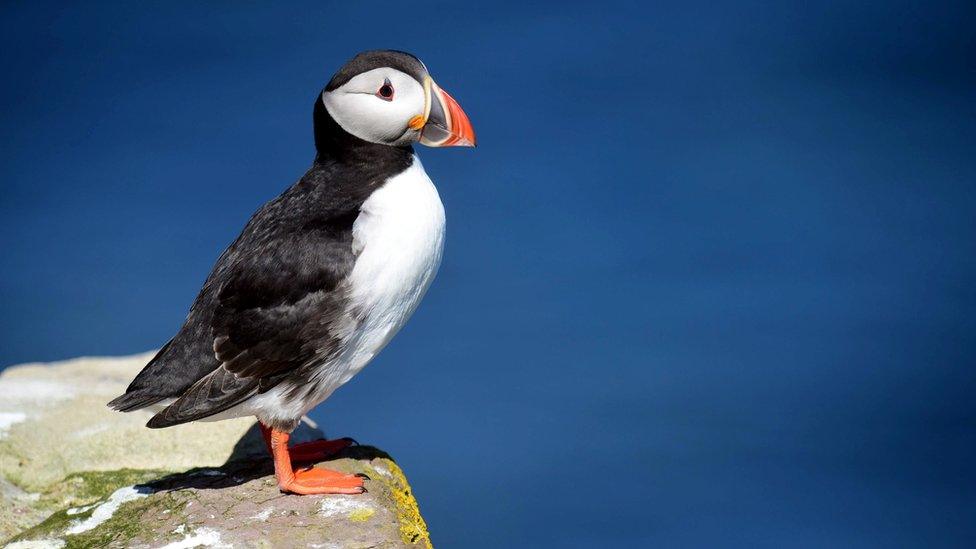Puffin spotted at Abberton Reservoir dies
- Published

A puffin was photographed at the Essex Wildlife Trust's Abberton Reservoir Nature Discovery Park on Tuesday
A puffin spotted in an out-of-the-ordinary location on a body of inland water has died.
The seabird was filmed at the Essex Wildlife Trust's Abberton Reservoir, near Colchester, on Tuesday by a person on its island hide.
But the bird was seen later seen dead, the trust said.
A spokeswoman said because it was an such unusual location for a puffin at this time of year, it may have been injured or sick and blown off course.
Kieren Alexander, from RSPB Old Hall Marshes in Essex, said: "It's the first puffin ever noted at Abberton Reservoir and the records go back to 1944.
"Puffins usually only come ashore to breed, between April to July, and spend the rest of their time out at sea."
He said such sightings like this could be "linked to a wider problem with food supplies in the North Sea" due to climate change.
The British Trust for Ornithology (BTO), which recently warned of a UK puffin population decline, said such a sighting was "incredibly rare".
Half the UK's puffin population is at only a few sites including the RSPB's Bempton Cliffs reserve in East Yorkshire and the Farne Islands and Coquet Island off the Northumberland coast.
The Abberton Reservoir Nature Discovery Park, which is visited by up to 40,000 ducks, swans and geese visit each year, is about seven miles (11km) from the coast at Mersea Island.

The BTO has said puffins could largely disappear from the UK as a result of climate change over the coming years
Last week, the BTO said puffins could largely disappear from the UK as a result of climate change over the coming years.
Its recent Climate Change Report, external indicated that the country's puffin population could decline if global warming was not checked.
Director of science and lead author of the report, Prof James Pearce-Higgins, said, "When we heard about the puffin at Abberton Reservoir, we were amazed as an inland occurrence of this beautiful seabird is incredibly rare.
"Unfortunately, if we fail to keep global temperatures down we could lose around 90% of our breeding puffins by 2050 due to the impacts of warming on our seas, and they will become harder to see everywhere."

Find BBC News: East of England on Facebook, external, Instagram, external and Twitter, external. If you have a story suggestion email eastofenglandnews@bbc.co.uk, external
- Published1 July 2021

- Published7 April 2021
